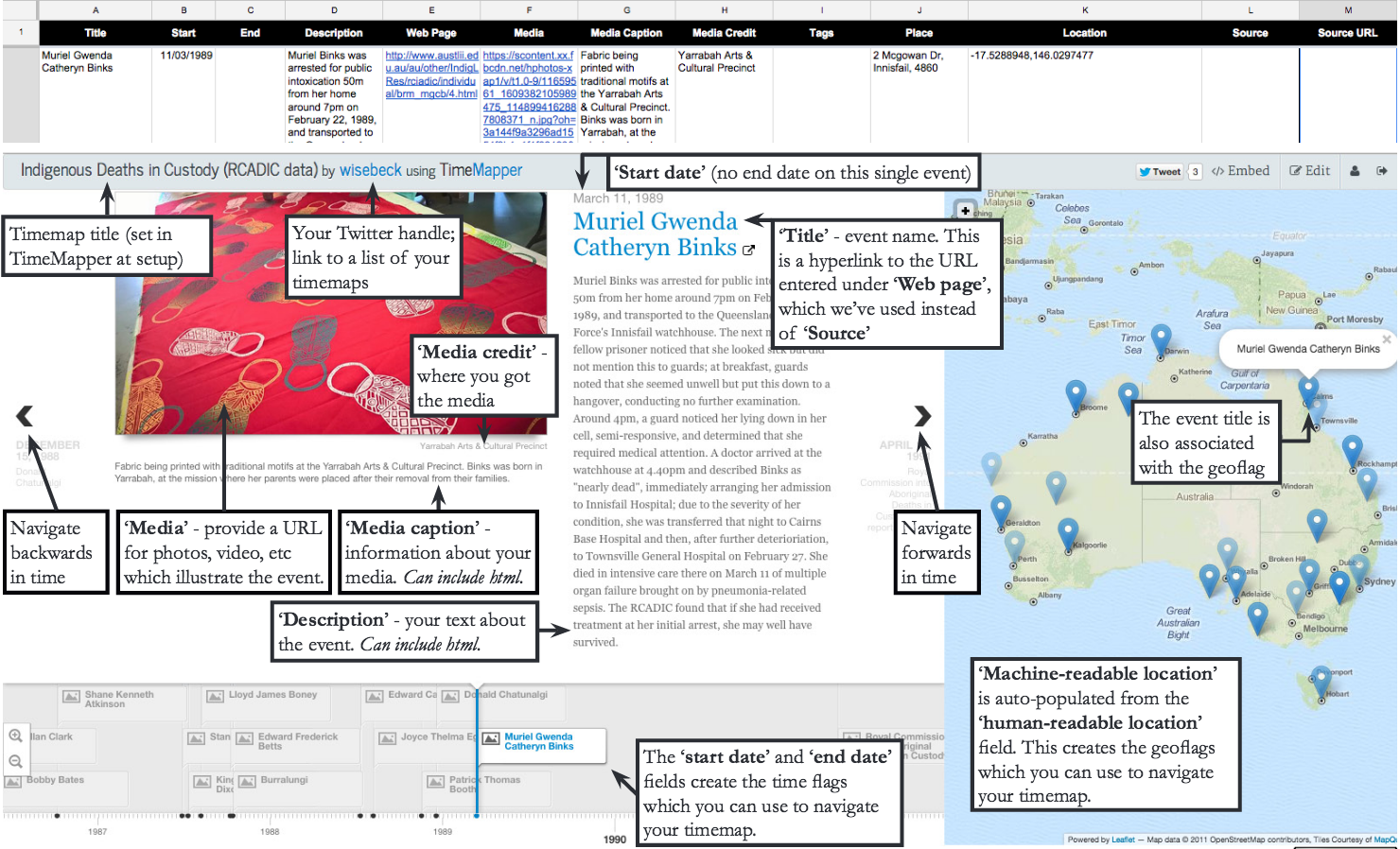TimeMapper is a free and open source tool for building timemaps, visualizations in which every data point is mapped to both its temporal and geographic location.
This summer, I designed a lesson plan using TimeMapper for the Department of Rhetoric & Writing’s First Year Writing course, which is primarily taught by graduate student instructors in their first year as an instructor of record. They are provided with an ‘Instructor Guide’ which, alongside other resources, contains day plans for each class over the course of the semester. The TimeMapper lesson plan was one of three explicitly digital plans written for the instructor guide.
The lesson plan asks students to work individually or in small groups to create a single class-wide timemap of an issue or event related to the course theme — in 2015-16, Race & Criminal Justice — and is designed for digital classrooms. However, it’s readily adaptable to BYOD classes — since TimeMapper is a web app, it works across platforms — and other course themes.
The lesson plan is supported with a series of handouts for both instructors and students, including tutorials for using TimeMapper, instructions for this lesson plan, and a guide showing the relationship between input data and output visualization. These handouts are downloadable at the end of this post.
In addition to the lesson plan and handouts, I designed a sample timemap and made our data publicly available, so that students can see both a finished project and the Google spreadsheet from which the timemap is drawn. This timemap uses data from the Australian Royal Commission into Aboriginal Deaths in Custody, mapping and recapping the deaths of 99 individuals between 1980 and 1989.
Handouts
- “Getting Started with TimeMapper” – for instructors, or students working independently to create timemaps
- “Collaborative TimeMaps with TimeMapper” – for students following the DWRL’s existing lesson plan
- “Understanding Your TimeMap” – annotated screenshot of a timemap, for students and instructors
- All of the above handouts compiled as a single PDF
Update August 2, 2016: Want to know how other instructors have used this lesson plan in their composition and literature classes? Check out our ‘Assignment Spotlight‘, where Regina Mills and Kirsten Meemann discuss their experiences teaching with TimeMapper.






